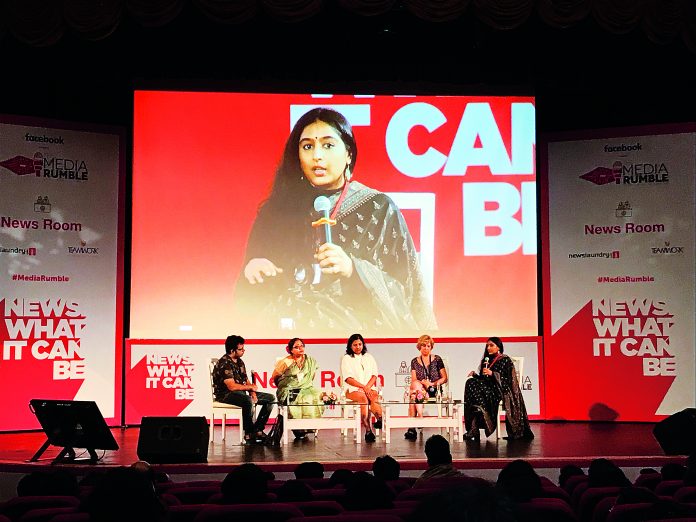The Me Too movement in India is a local manifestation of the international Me Too movement that occurred late in 2018 in parts of Indian society, including government agencies, the media and the Bollywood film industry. In India, Me Too is seen as either an independent outgrowth influenced by the international campaign against sexual harassment of women in the workplace, or an offshoot of the American Me Too social movement. It gained prominence in India in October 2018, when Bollywood actress Tanushree Dutta accused Nana Patekar of sexual harassment. This led to many women in news media, Indian films, and even within the government to speak out and make allegations of sexual harassment against many perpetrators.
At the recently concluded Media Rumble, Amit Verma moderated the ‘Dissecting the #MeToo Tsunami’ panel in conversation with Paromita Vohra, Supriya Nair, Vivan Schiller and Padmapriya Janakiraman. They discussed whether the media’s coverage of the Me Too movement actually impacted the culture of misogyny in workplaces. Vohra is a writer and filmmaker whose films are centered around gender; Janakiraman is an actress and part of the Women in Cinema Collective; Nair is a writer and editor; while Schiller is the head of the Civil Foundation.
The panelists were of the opinion that despite a huge impact, the media failed to address the core issues of the movement. Nair explained that the media was lazy in its coverage and didn’t focus on covering the deeper issues while simply reporting the accusations. Nair believed that the media houses thought the issue won’t get ratings after the first sensationalist headline. Schiller said, “Refecting on the dynamics in the United States, there is just an incredible positive movement towards greater representation. There has been a tremendous rise in a positive movement in the United States on that front across media and other sectors.”
Janakiraman said that women have to stop feeling guilty for being harassed and instead society must feel guilty for creating an ecosystem that allows women to be harassed. She criticized the culture of protecting the perpetrators and enablers while shaming, blacklisting and discrediting victims and supporters. She also credited the South Indian press for covering rape and women’s issues better than its North Indian counterparts. Vohra summed up the discussion saying that women are not considered newsworthy unless something wrong happens with them.
















